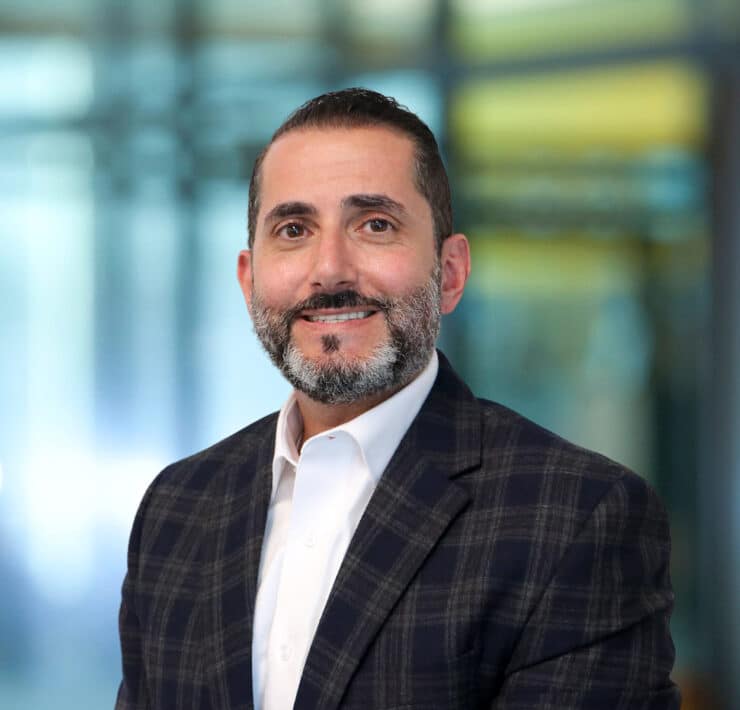
|
Getting your Trinity Audio player ready...
|
Jason Vlacich, chief accounting officer of Target Hospitality, is in the business of hospitality services. His company, which provides vertically integrated specialty rental and comprehensive hospitality services including catering and food services, maintenance, housekeeping, grounds-keeping, security, health and recreation services, overall workforce community management, and laundry service, is done on a massive scale and generally not in proximity to traditional municipal services.
“We build small cities in the middle of nowhere,” says Vlacich of the business, based in Woodlands, Texas, near Houston.
The chief accounting officer keeps an eye on cost structures and revenue streams, as well as how to build, run, and potentially move a temporary city at a profit. Target Hospitality completed a successful version of an IPO (an initial public offering, done via a reverse recapitalization) in 2019 that not only helped the company grow, but also met one of Vlacich’s career goals.
“[Streamlining the accounting function has helped] our core team to focus on analytics.”
Jason Vlacich
His background in accounting followed a somewhat nonlinear path that had him cycling in and out of a Big Four accounting firm and alternately working on the client side of things. At Target Hospitality, this résumé has proven helpful.
Understanding what Target Hospitality does explains its attractiveness to investors. The company sets up mini cities that it refers to as its “lodge network.” The largest example of these is a cluster of roughly nineteen communities in the mostly rural areas of west Texas. With more than six thousand beds across these communities, the company provides a turnkey operation for companies that need to attract skilled workers who come from somewhere else. A similar network is concentrated in North Dakota.
These kinds of developments are built quickly, but go beyond providing simple shelter. Target Hospitality offers its customers a more thoughtful and strategic approach that prioritizes occupant health and well-being. This includes connectivity (i.e., dependable Wi-Fi), wellness (healthy foods and recreation), community (common areas for dining and sports), and various hospitality services. The net effect is higher employee retention and a more productive workforce.
The company also provides facilities to support humanitarian aid efforts—including one with four thousand beds—as part of a lease and services agreement with a leading national nonprofit organization, backed by a committed United States government contract, to provide a suite of comprehensive service offerings in support of their humanitarian aid efforts.
Vlacich previously worked in a hospitality investment and management company for six years, which expanded his experience in that sector of the industry. With locations distributed around the US and Europe, Vlacich had approximately two hundred site accountants and approximately sixty corporate accountants ultimately reporting to him. He was able to retire an antiquated accounting system, engaging the Oracle Fusion Cloud to modernize and streamline the operation.
That was in preparation for a planned IPO, but the company ultimately didn’t go public. “This is when I decided to join Target Hospitality,” Vlacich recalls. “It looked more likely they would do an IPO.”
“With exciting growth in this business, and the diversification, we can also make continued improvements on the accounting side processes.”
Jason Vlacich
That was in 2018, and by 2019 Target Hospitality went public by way of a reverse recapitalization, also known as a SPAC IPO: the acquisition of a private company (Target Hospitality) by an existing public company (Platinum Eagle Acquisition Corporation). Vlacich says shareholders of the parent company, which has been renamed Target Hospitality Corp. and is listed on the NASDAQ exchange, approved it for several reasons.
“There were a number of hedge funds involved,” he says. “They are sophisticated investors who were attracted to the merger [due to] our cash flow, our margins being about double of those of traditional hotels, [us owning] the assets (compared to other managed only hospitality companies), our high growth rate, and [our] impressive management team with long tenure in the business.”
Vlacich cites his streamlined accounting function as his value to the company, which keeps various external and internal stakeholders informed with timely, responsive, accurate, and complete financial information delivered with high efficiency. The pivot from a manual to cloud-based system helped match Target Hospitality’s growth and automated many processes; the close to full reporting process dropped from more than thirty days to fewer than ten.
The company now outsources certain mundane and repetitive tasks—such as accounts payable, journal entries, reconciliations, and cash application of accounts receivable—to vendors. “This helps our core team to focus on review and analytics,” Vlacich observes.
Having financial information at the employees’ fingertips and being able to perform those analytics in a nimble fashion mirrors the flexible and adaptive nature of Target Hospitality’s business overall. The ups and downs of the industry can sometimes demand it—allowing those remote facilities the ability to be dismantled and moved elsewhere—while emerging needs for remote comprehensive hospitality services offer new opportunities.
“I enjoy hospitality services,” the accounting chief says. “With exciting growth in this business, and the diversification, we can also make continued improvements on the accounting side processes.”
Thoughts from Guest Editor Susan Pikitch
“Timely and actionable reporting and analysis in a distributed, cloud environment is a key ingredient in the hospitality business, and Jason Vlacich put in the processes, efficiencies, and infrastructure to make it happen in a world-class way.”
Read features from the Issue 4 2021 Finance section, which include commentary from Guest Editor Susan Pikitch.







